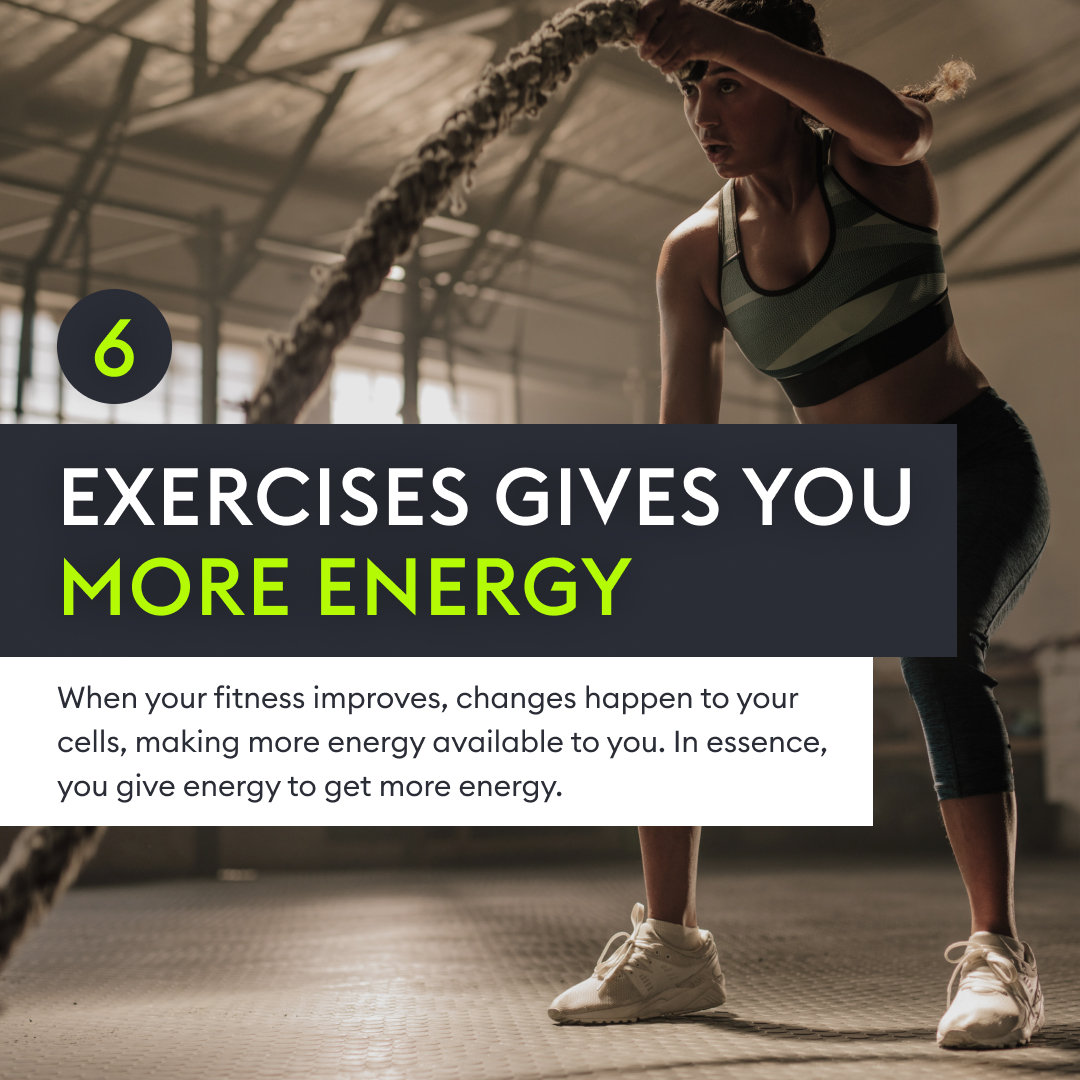For some of us, looking after our mental health has always been a priority. Because it presents a constant and chronic struggle. For others, it may occasionally or only recently be something that needs our attention. It doesn’t matter what fight we’re fighting; mental health always matters.
There are so many different ways we look to manage mental health and prioritise looking after our heads and what’s going on inside them. What works for one of us might not for another. But today, we want to talk about exercise.
Exercise is always talked about as a way to look after the body; because it is. But it also plays a significant role in mental health as well as physical health. Essentially, you can use your body to look after your brain.
However, it’s all well and good to say that exercise is good for mental health. But how? Understanding some key facts about how the two are linked can give us the guidance we need to include it in a healthy and self-loving routine.
Here are 6 essential facts we think are worth sharing.
1. Exercise improves your deep sleep.
It’s not really necessary to talk about how sleep can benefit your mental health. It’s a literal way to switch off, refresh, and let the brain and body recover from the day. Without it, mental health suffers massively. Unfortunately for some, getting a good night’s sleep is really difficult. Anxiety and insomnia can be both characterised by the inability to sleep enough.
Aerobic exercise increases the amount of deep and restorative sleep you get at night. There are many different ways exercise impacts your night’s rest, but this is probably the most telling one. Exercise helps you get into that stage 3 and 4 sleep, making you feel refreshed and restored the next day.
How to use this fact: If you’re experiencing sleep troubles, aim to get some exercise in at least 4 hours before bed. This can be a walk, a run, or a gym session. It doesn’t matter. Get the heart rate going and the blood moving around the body.
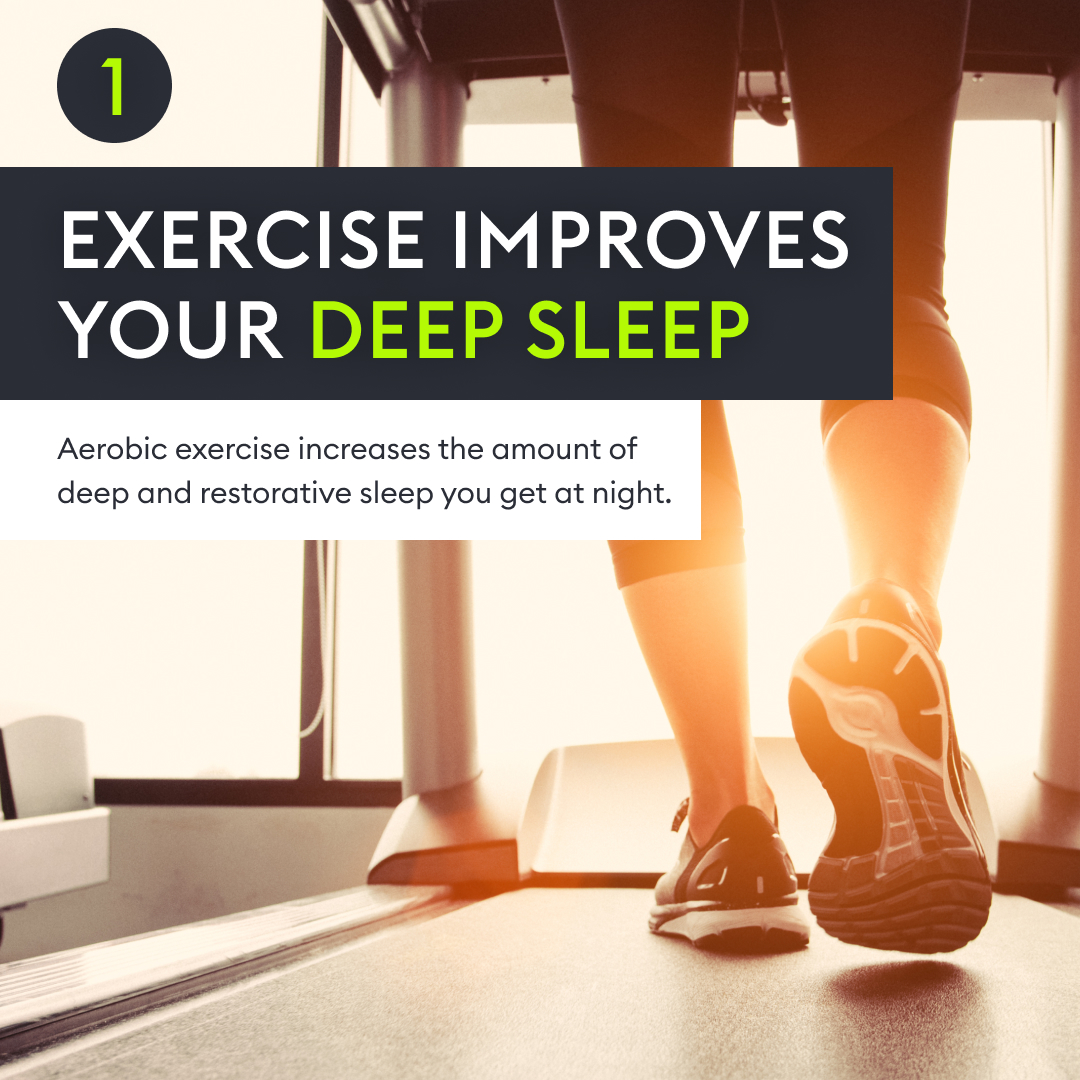
2. Exercise relieves stress hormone levels
There probably isn’t an adult in the UK who is a stranger to stress. We all feel it. In different ways, at different intensities, and for various reasons.
Stress is natural, but the problem is that it can quickly become chronic. When stressed, the body releases a hormone called cortisol. The long-term effects of increased cortisol levels create not just mental health issues but also physical health.
If you exercise during the day, your cortisol levels are lower by the evening. If your body isn’t producing much, it’s a sign your stress levels are pretty low.
How to use this fact: Use exercise as a tool for stress management. When something has irritated you or work is feeling too much, schedule some dedicated time during the day for exercise. Set that boundary with yourself. Not only will it offer you some escape and distraction, but it will also reduce your cortisol levels and relieve some of those feelings of stress.
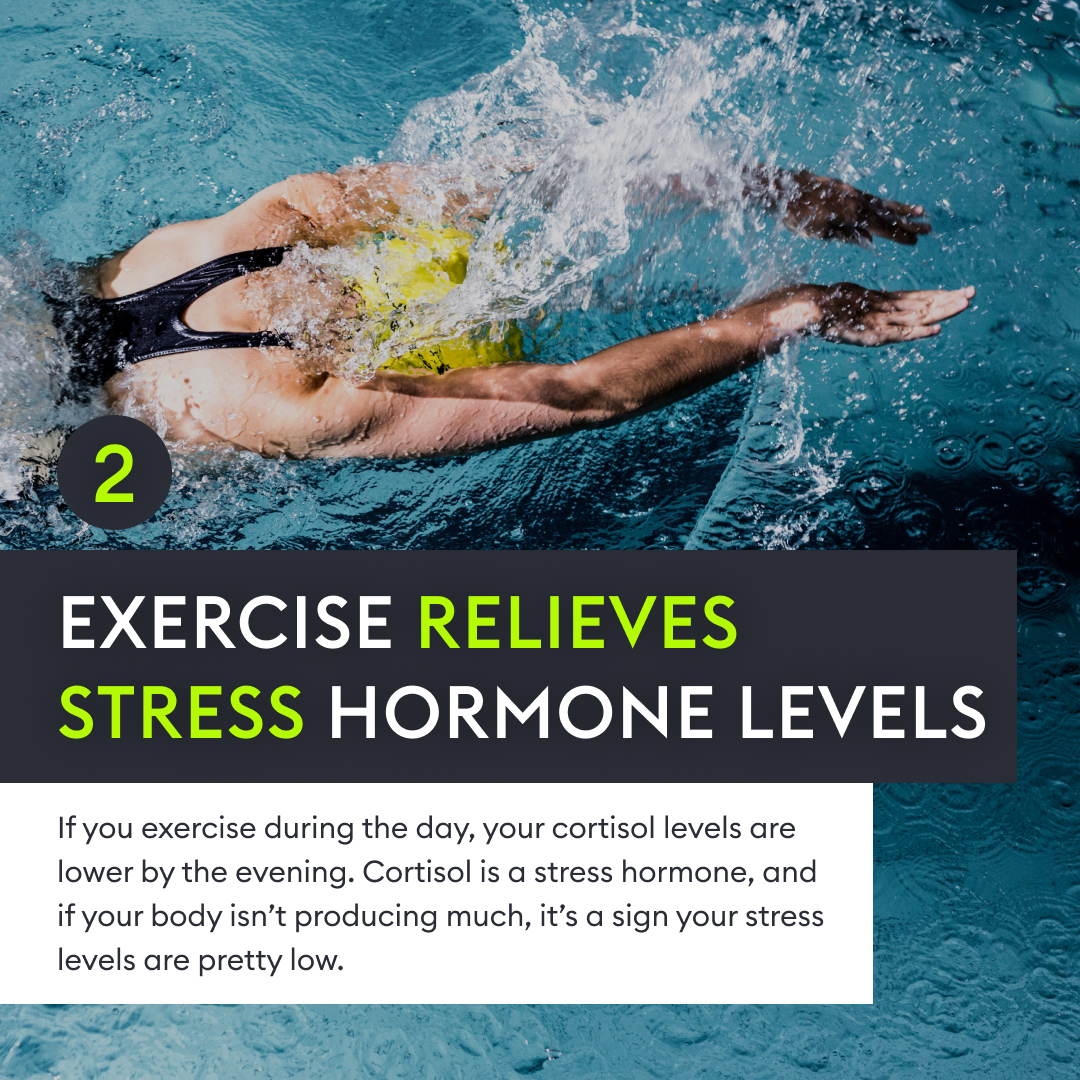
3. Exercise affects your mood-related hormones.
Monoamines and endorphins. Two essential hormones said to be responsible for mood improvements from exercise. The effects are linked to short-term improvements immediately after a session and are also related to long-term impacts like decreased feelings of depression.
If you’re familiar with that post-exercise rush, you’ll have felt the effects of these hormones before. Feeling a noticeable improvement in your mood is enough motivation to get a workout done for many.
How to use this fact: View exercise as something you have in your pocket, which will always help you improve your mood. Although it cannot exclusively solve a problem or a mental health illness, it’s something you own and that you can use to lift your mood and bring you into a better headspace.
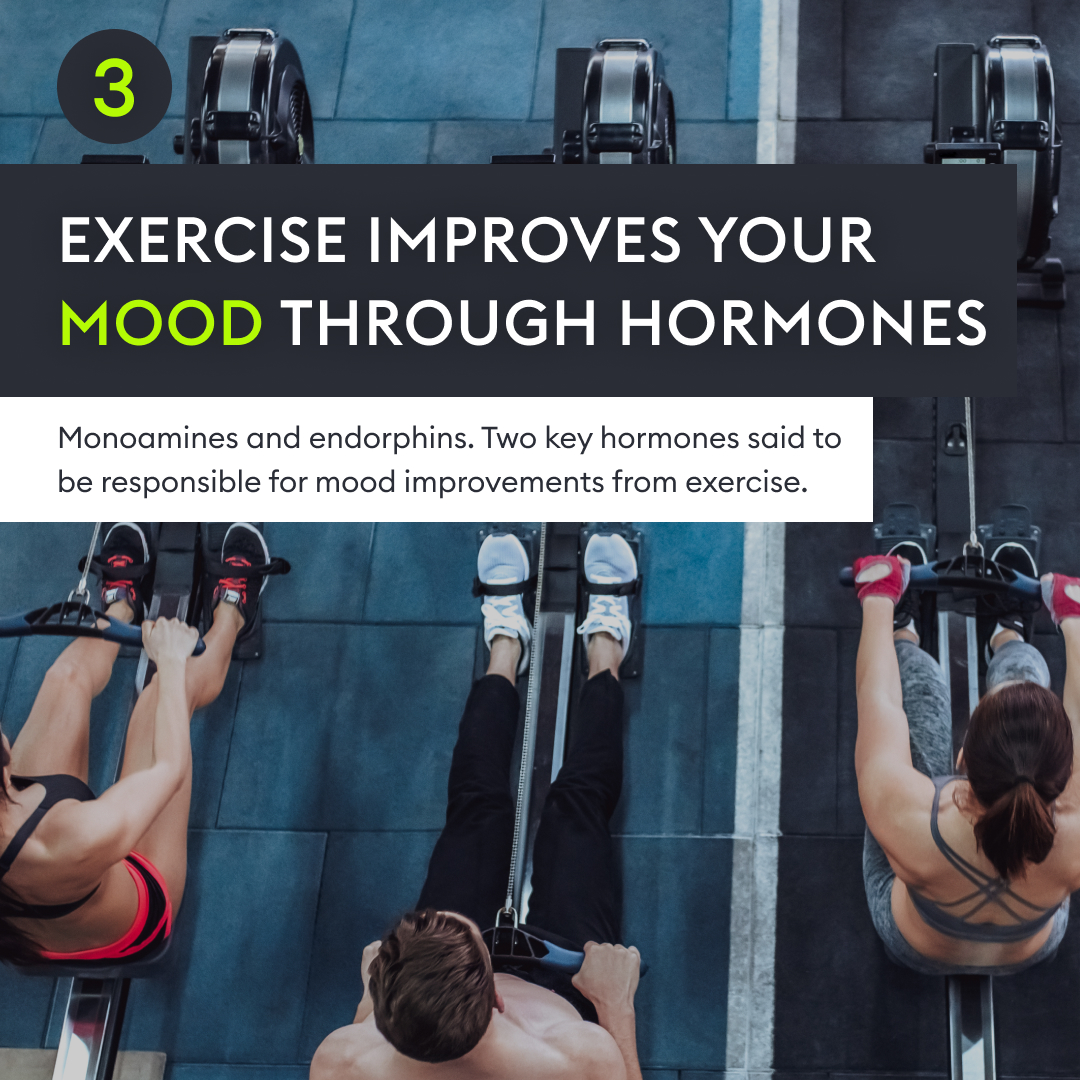
4. Exercise improves your memory and attention.
There is loads of evidence linking physical exercise to ‘cognitive functioning‘. In short, you can expect to see some positive impacts on your mental alertness because of that increase in blood flow.
How to use this fact: On those days where you’re feeling distracted, overwhelmed, in your own head, and unproductive, use exercise as a respite to all that and hopefully come away from it feeling much sharper.
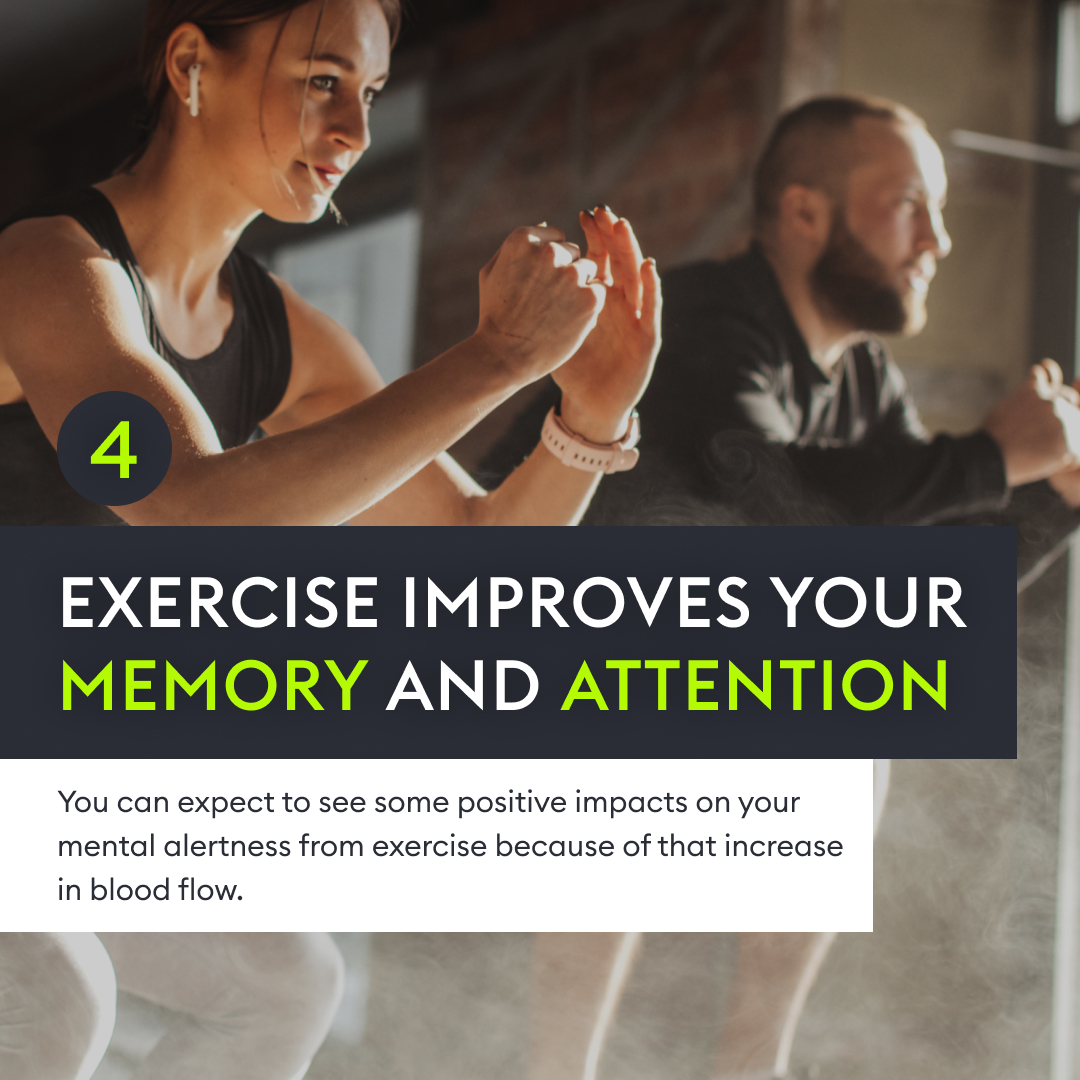
5. Exercise increases self-esteem
The research between exercise and self-esteem has nothing to do with how you look. It’s not about changing how you look and feeling better about yourself.
The psychological effect of regular taking on a challenge is shown to lead to higher levels of self-esteem. Reconfirming your own abilities every day reminds you that you’re doing your best. It’s about your own standards and nobody elses’.
How to use this fact: Reflect on exercise as an achievement. It doesn’t matter what you did. Acknowledge yourself for doing it. Use that as motivation to try new things, set goals, and find something you enjoy when it comes to a workout.
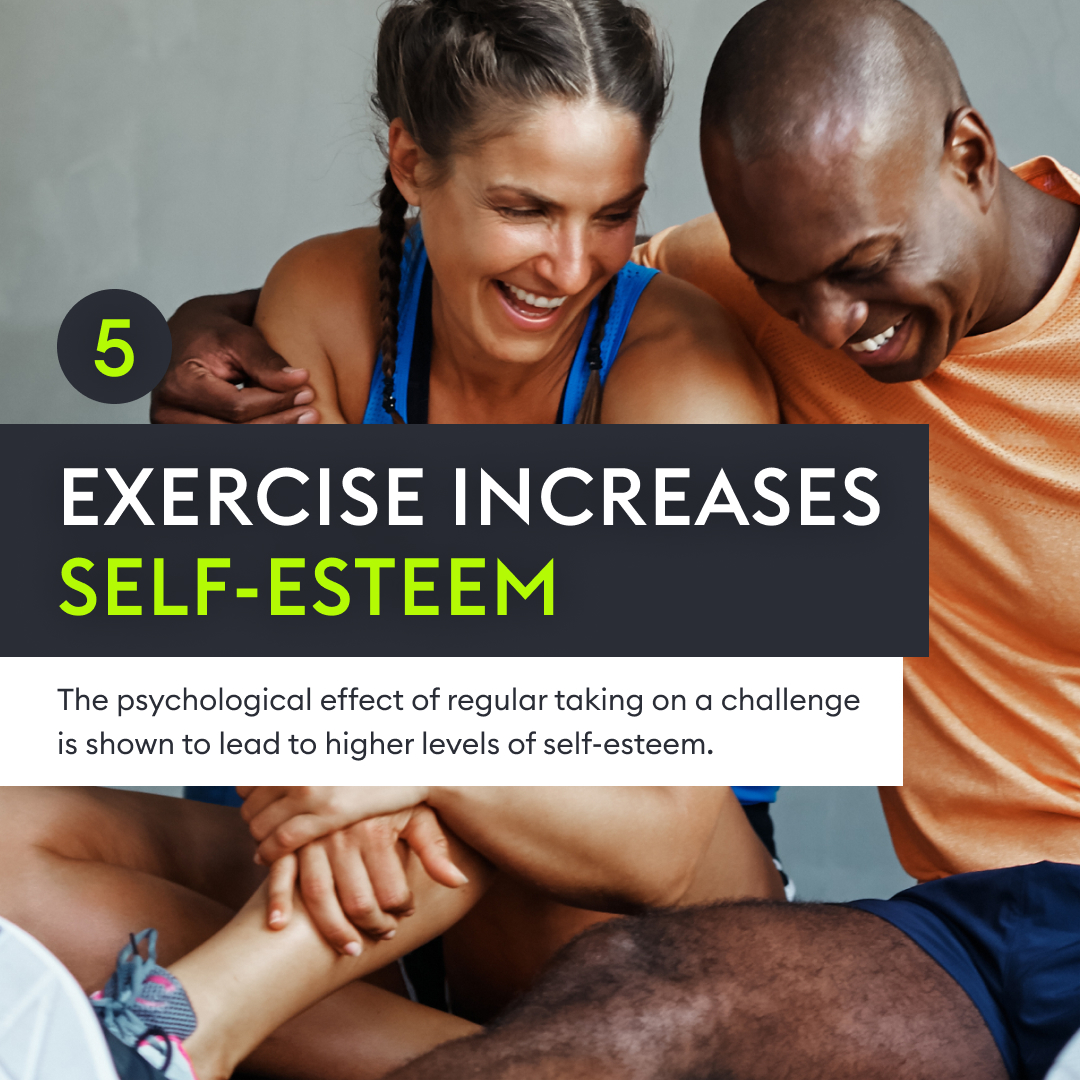
6. Exercise gives you more energy.
Feeling lethargic and lacking in energy is both the result and a cause of mental health struggles. When you don’t feel your best, you don’t tend to think your best either.
Giving yourself more energy, and we don’t mean with caffeine, is a great way to recharge. When your fitness improves, changes happen to your cells, making more energy available to you. In essence, you give the energy to get more energy.
How to use this fact: Move away from thinking about exercise as only a way to look better. Focus on how it will make you feel better in the long run. Having more energy is a great motivation. And you get older, you’ll be grateful for your physical health in ways you might not appreciate right now.
